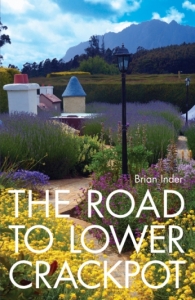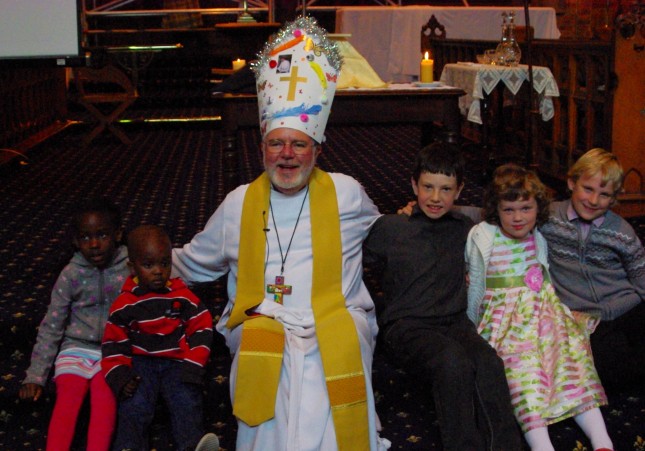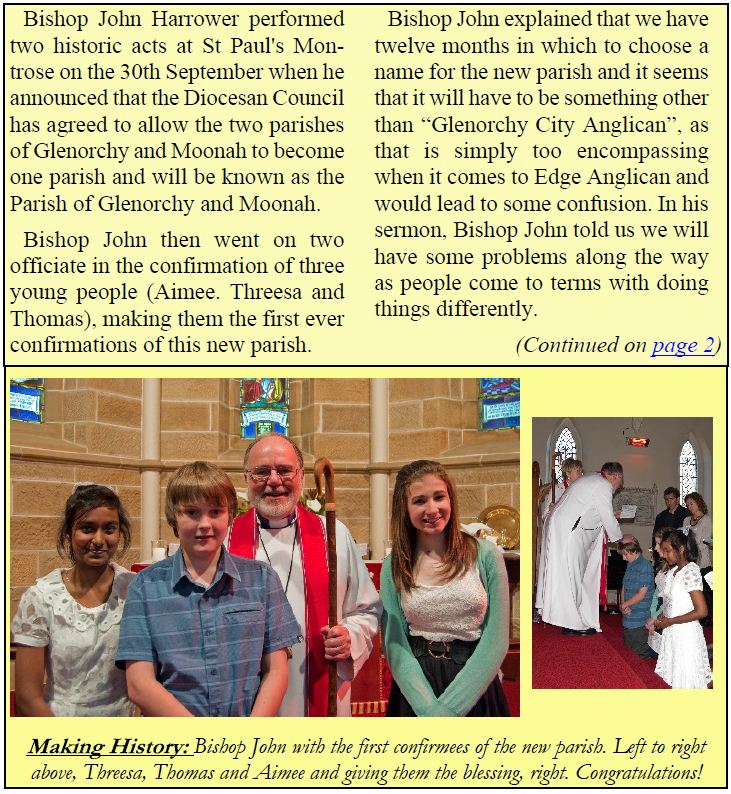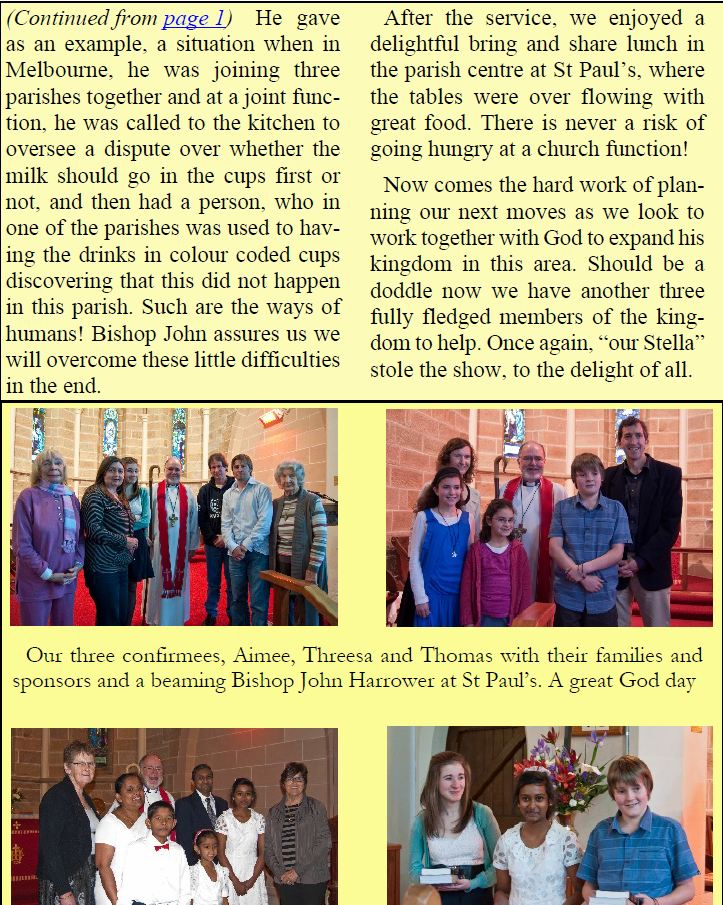Channels of Hope for Gender
Orientation Workshop – Senior Anglican Church Leaders
Solomon Islands – October 10, 2012
Opening Remarks by the Right Reverend John Harrower OAM, Bishop of Tasmania
May I begin my remarks today by congratulating you, the leaders of the Anglican Church in Solomon Islands, for your willingness and commitment to overcoming gender-based violence. I can say this confidently because of the good news I have heard about your ministry in this area through the Men’s Advocacy Group and the Christian Care Centre (which I was able to visit yesterday) and also your willingness to join in today’s seminar.
As the Bishop of the Anglican Church in Tasmania and a member of the Board of World Vision Australia I am very pleased to be able to join with you in learning further about this Channels of Hope program.
Marriage is to be like the relationship between Christ and the Church. Marriage is to be loving, generous, joyful, forgiving and growing.
Marriage vows: “In sickness and health, in riches and poverty.” Husbands and wives are to stay together in good and bad times. The husband is to love his wife as Christ loves the Church. When a wife uses her tongue to hurt her husband, then her tongue may be the cross for her husband. Husbands must never respond with violence.
With sadness I say to you that in Tasmania I am challenged with the knowledge that within our churches and within the broader community, gender-based violence is occurring. That women and children are living in fear.
Let me share one example:
I know of a lady who had suffered for years from gender-based violence. She was married to a man who hurt her both physically and emotionally, and along with her children she lived with constant anxiety and fear. Part of the problem for her was that her husband was a “nice” man very much committed to his church and respected by everyone. On the outside it looked like they had a happy life.
When she finally tried to explain to her church what was happening to her at home, some listened and some even spoke to her husband. But because it all looked “happy on the outside” and the husband was a nice man who regularly came to church, people did not really understand. The lady felt that no one believed her and that she was a bad person for speaking about her husband’s behaviour.
She eventually left her husband but she still thinks that no one in the Church ever really understood what was happening to her. She felt that, because the Church didn’t believe her. She is also worried that the problem will be repeated. She fears her children will think violence against women is normal.
She is angry because she feels that the Church does nothing to help in these situations. It does not make people aware that this might be happening and is in no position to help save her children from making the same mistakes as their father.
Yes, I confess that the Church has often been far from helpful. The Church has not always been there for victims of gender-based violence. We have not always believed the victims’ stories. We have not always known what to do. In our discomfort, sometimes we have drawn away from the victim when we should have been like Christ and drawn closer in love and support.
As I stand before you today I testify that I want to be part of what it takes to end gender-based violence.
When studying gender-based violence we cannot overlook male power and privilege that justifies violence against women and children. A challenge for our churches is to examine our history and to look to a future where we challenge our own attitudes about male power.
Challenges within the Church community include understanding what God wants from us.
For example:
Sometimes we have misused the wonderful and liberating message of forgiving, and turned it into a heavy burden on victims. This occurs when we insist on victims forgiving without the community confronting the person who acted violently. We have therefore kept victims powerless. We have put too little energy into condemning violence and holding offenders accountable. We have been silent when we should have spoken loudly.
We needed to be stronger in saying that repentance by offenders involves much more than saying sorry and confession. Repentance involves changing both attitudes and behavior. (See for example Ezekiel 18.30-31.)
What can the Church do?
The Church needs to actively address gender violence
- By recognising violence happens and talking about it in our churches
- By condemning it as always wrong and distructive
- By believing and supporting victims
- By praying for those suffering abuse and for those who abuse (see the prayers below from the Australian Anglican Prayer Book)
- By challenging offenders from all walks of life to change – and then supporting and assisting them to change.
- By having a brave look at how male power and privilege is used in our society, churches and in our homes.
- By participating in changing community attitudes
- By ensuring we don’t misuse theology to permit the continuation of gender-based violence.
Channels of Hope for Gender is one of the advocacy initiatives that World Vision is using around the world to promote healthy family relationships.
The role of the Church in promoting the equal worth of men and women, boys and girls cannot be overemphasized. The equal sacred worth of all human beings regardless of gender or class or race is a biblical value. We are all made in the image of God. There is none that is better placed than the Church to advocate for that in communities.
While it is true that gender-based violence is a global challenge, it is also a fact that Solomon Islands has some of the highest statistics on violence against women and girls. World Vision is making an invitation through Channels of Hope for a joint effort towards the reduction and even eradication of gender-based violence in our communities. We see this as the beginning of a common vision for harmony and progress in our communities. For the next few hours, we will sample some of the life-changing biblical tools for development and decide for ourselves to what extent this could contribute to our ministry together.
May the Spirit of Christ guide and bless our time today. Amen.
A Prayer for those suffering abuse
Loving God, whose Son was both victim and victor, we cry to you for those who suffer abuse, [especially…….]. Be with them in confusion and pain. Heal the wounds of body and mind; break open the prisons of fear, self doubt and despair; and strengthen them to face the future with faith, hope and courage. Enable us to listen, to believe and to love. Reach out to them with your love, that they may be made whole in body, mind and spirit, through the healing touch of the suffering Christ. Amen
A Prayer for those who abuse
Judge of all the earth, God of justice, we bring before you all who abuse others. Turn the hearts of the violent from the way of evil. Fill them with a hatred of the damage they do, so bringing them to true repentance and amendment of their lives for Jesus Christ’s sake. Amen
(From, A Prayer Book for Australia, The Anglican Church of Australian, 1995)
See also, A Christian Response to Domestic Violence.





